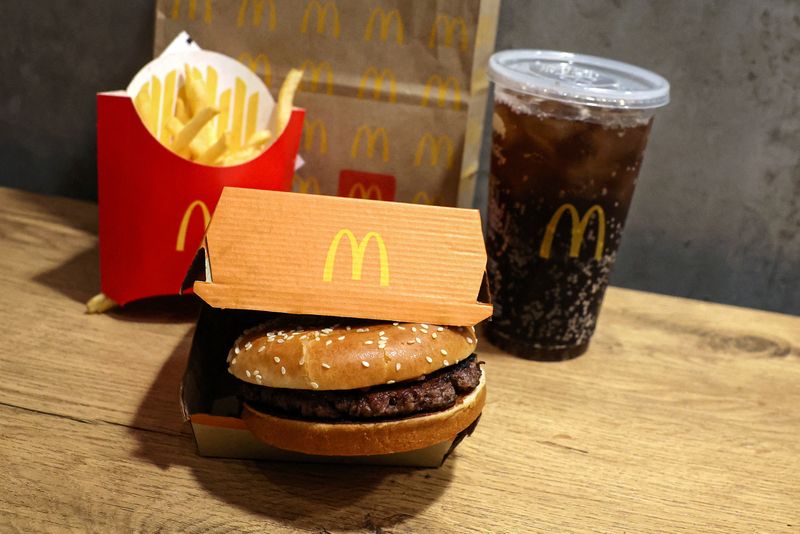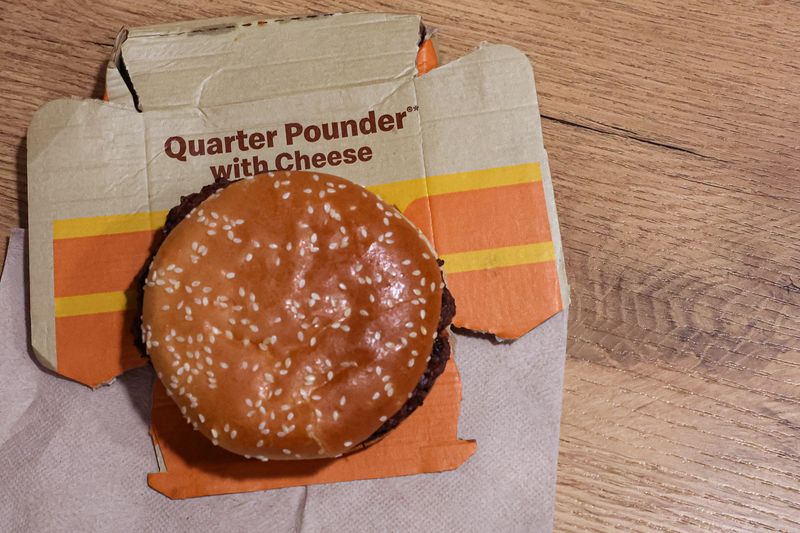By Diana Novak Jones
(Reuters) -A Colorado man has filed what appears to be the first lawsuit against McDonald’s (NYSE:MCD) over an E. coli outbreak linked to Quarter Pounder burgers that has killed one person and sickened nearly 50 others.
The lawsuit, filed in Circuit Court in Cook County, Illinois, on Wednesday, alleges that Eric Stelly ate food from a Greeley, Colorado, McDonald’s on Oct. 4 and tested positive for E. coli a few days later. Colorado health officials later told Stelly that his E. coli was connected to the McDonald’s outbreak, the lawsuit said. Stelly lives in Greeley, but sued McDonald's in Chicago, where the company is based.
The lawsuit, which seeks more than $50,000 in damages, claims McDonald's was negligent in its handling and care of the food. Shares pared gains after news of the lawsuit and were last up 0.5%.
Representatives of McDonald’s did not immediately respond to a request for comment.
McDonald's USA President Joe Erlinger on Wednesday said the fast-food chain needs to rebuild trust with the public after it pulled the item off its menu at a fifth of its 14,000 U.S. restaurants.
The outbreak has sickened people across the U.S. West and Midwest, with one dead and 10 hospitalized due to serious complications, according to the U.S. Centers for Disease Control and Prevention.
Ron Simon, an attorney representing Stelly, said he is representing another 15 people who were impacted by the outbreak.

The CDC and McDonald's are scrutinizing the company's supplies of slivered onions and beef patties as they try to determine the cause of the outbreak, the company said. The U.S. Department of Agriculture said late on Wednesday that the onions used were the likely source of the illness, though one of its state partners is testing samples of the beef for E. coli.
The E. coli O157:H7 strain that led to the McDonald's outbreak is the same as a strain linked to a 1993 incident at Jack in the Box (NASDAQ:JACK) that killed four children. McDonald's suppliers test their products frequently and did so in the date range the CDC gave for the outbreak, and none of them identified this E. coli strain, company spokespeople said.
